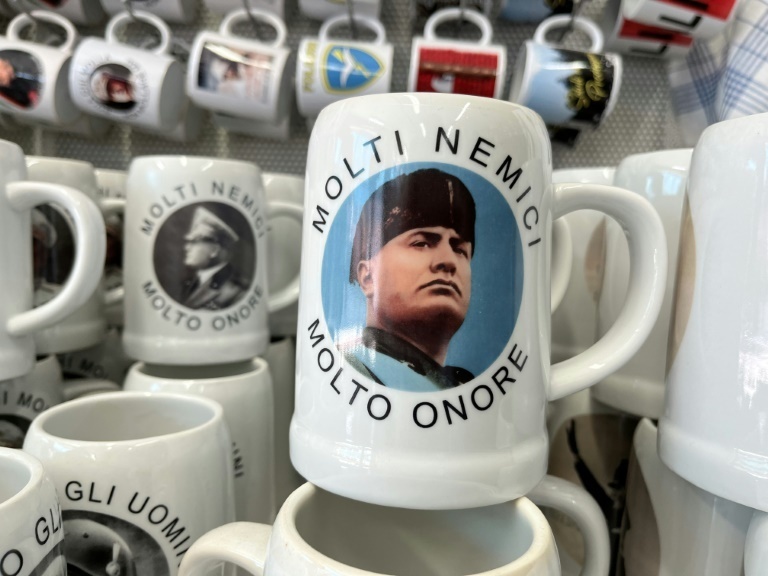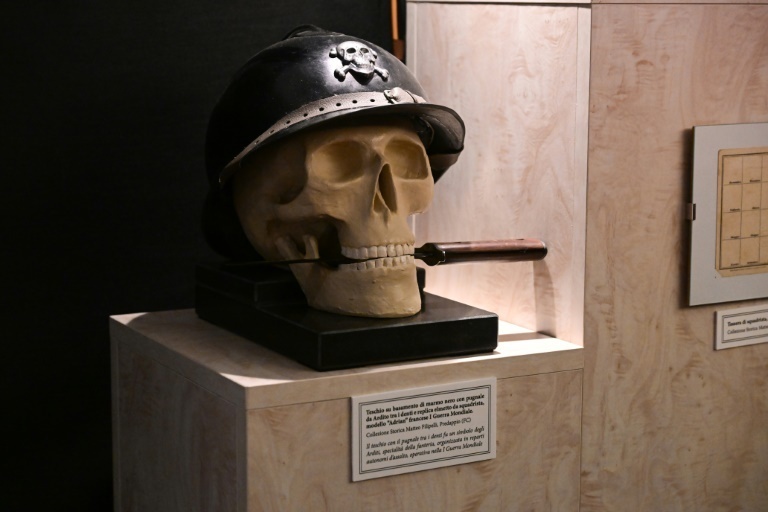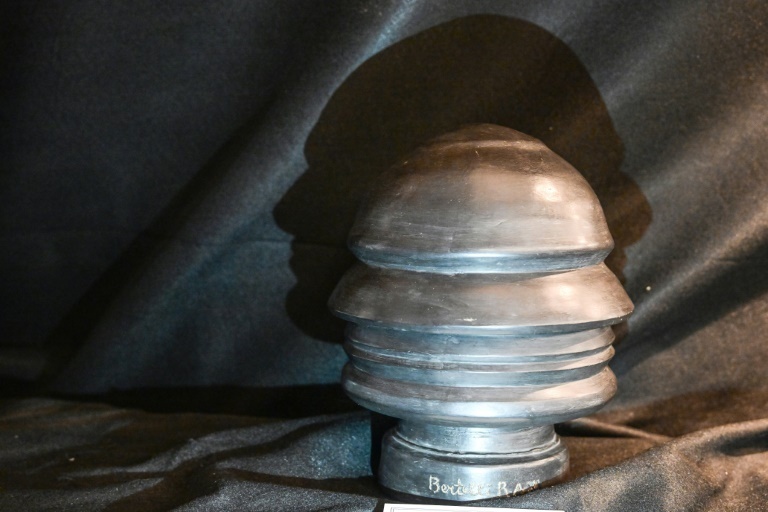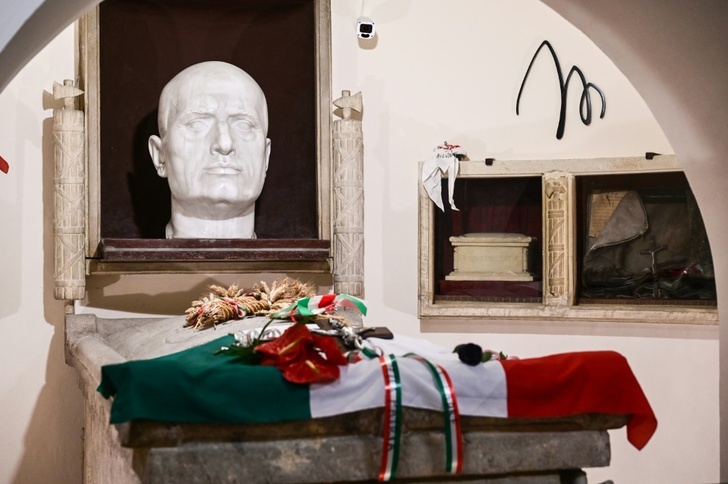One hundred years after he took power, the cult of Benito Mussolini persists in the small Italian town of Predappio, where his tomb draws tens of thousands of visitors each year.
Many are just curious but others are driven by nostalgia for a past that weighs heavily on the party tipped for victory in the general election on September 25 -- Giorgia Meloni's post-fascist Brothers of Italy.
A white marble bust of "Il Duce" adorns the crypt in the family chapel in the cemetery of this northeastern town, where Mussolini was born, while his sarcophagus is draped with the tricolour Italian flag.
"We will never forget you!" says one message in the gold book of condolences, while others say: "We will be reborn" and "Come back!"
One young visitor with a shaved head, visibly moved, brushed the tombstone with one hand before giving the Fascist salute to the man described on one of the ribbons in the crypt as the "father of the country".
Others who came with their families took a more nuanced view of the legacy of Mussolini, who took power after the so-called March on Rome in October 1922 before installing a dictatorship in 1925 that lasted until 1943.

Her view is typical of many Italians, who draw a line between what Mussolini did before and after his alliance with the Nazis and Italy's entry into World War II.
An IPSOS survey last year found 66 percent of Italians between 16 and 25 agreed the Fascist regime was "a dictatorship to condemn in part but which also brought benefits".
- Nostalgic attitudes -
The legacy of Fascism is being reexamined in this centenary year due to the surge in support for Meloni.
Her party grew out of the Italian Social Movement, which was itself founded by Mussolini supporters after his death in April 1945.
In Predappio, many visitors said they would be voting for Meloni.

Meloni insists there is "no room for nostalgic attitudes of Fascism" in her party -- which advocates a eurosceptic, nationalist Christian programme -- although it has rejected calls to remove the MSI's tricolour flame from its logo.
Her likely ascent to power is causing concern both at home and across Europe. But she is polling at around 24 percent, as part of a right-wing coalition that together commands around 47 percent support.
"I don't think there is any risk of returning to historic Facism," said Gianfranco Miro Gori, a local leader of the National Association of Italian Partisans, the name for the WWII anti-fascist fighters.
"But it is possible there will be a crackdown in the authoritarian sense and a restriction of freedoms, such as freedom of the press," he said.
However, 39-year-old Ivano, an admirer of Mussolini who works in a vineyard in Cuneo in northwest Italy and was visiting Predappio, insisted there was nothing to fear from Meloni.
"She isn't Fascist. She's Atlanticist and anti-Putin," he said.
- Fascist souvenirs -
Mussolini's tomb draws more than 70,000 visitors a year and there is a lively tourist trade in Predappio, where numerous shops sell fascist souvenirs.
There are "anti-Communist" bracelets, swastikas, bottles of wine adorned with the dictator's image, posters proclaiming "Italy for the Italians" and even a "Fascist Handbook".
A 40-something couple from Milan, Giovanna and Alessandro, left one shop bearing a Mussolini calendar.
"We are hoping for a Meloni win in the election. She will enforce respect for the rules and security," Alessandro said.

Among 170 objects borrowed from private collectors, there are uniforms, bladed weapons, guns and yellowed photos that illustrate the insurrection by Mussolini's blackshirts, their links to the Catholic church and industry.
"It's a cultural event which, in an objective, documented manner, invites us to reflect on what the March on Rome was. It's not an apology for Fascism," said Franco d'Emilio, one of the exhibition's curators.
The goal is to "make Predappio known for what it is -- that is, the Italian capital of the history of Fascism", commented Francesco Minutillo, a former leader of Brothers of Italy.
bh/ar/gil
© Agence France-Presse
Your content is great. However, if any of the content contained herein violates any rights of yours, including those of copyright, please contact us immediately by e-mail at media[@]kissrpr.com.
Source: Story.KISSPR.com

